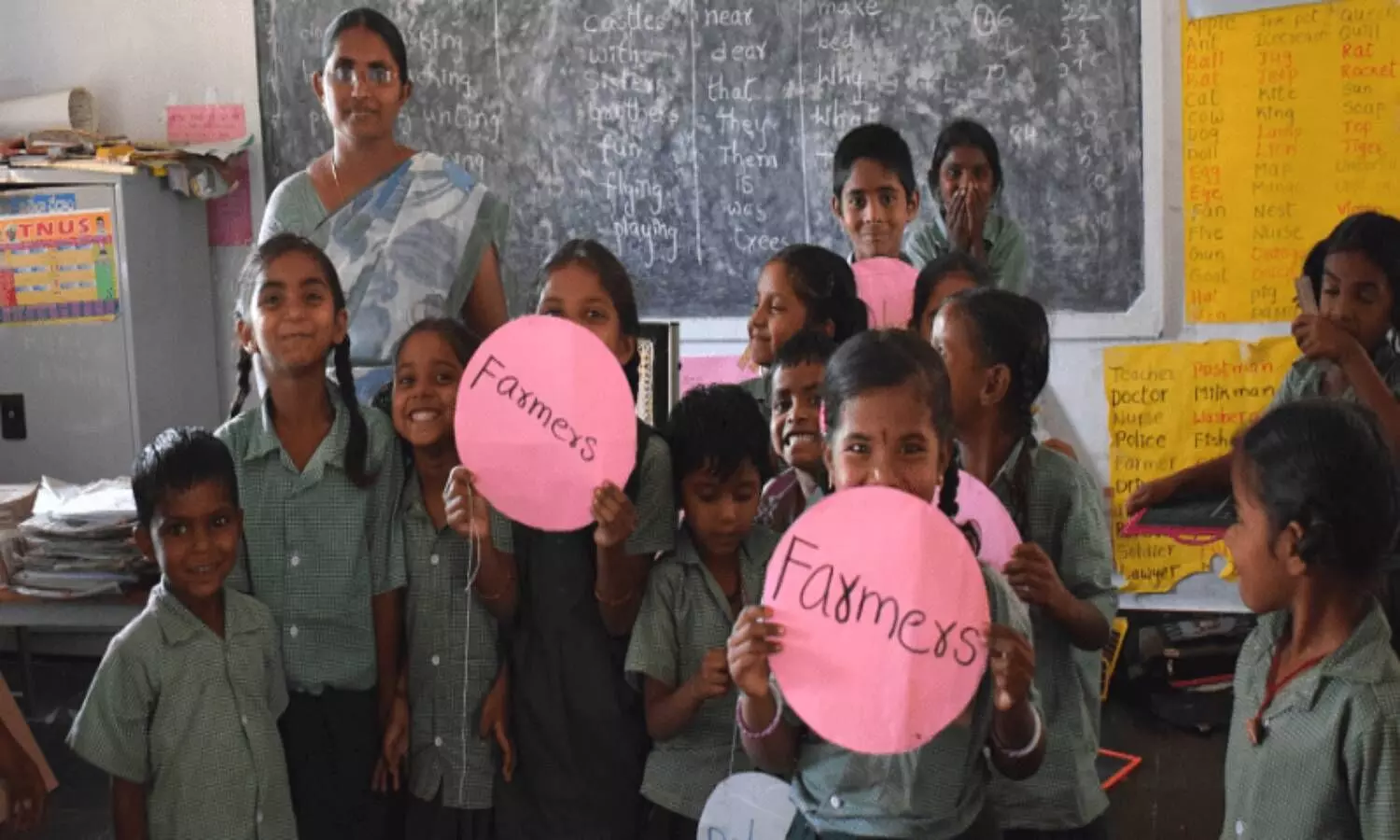AP signs $250M deal with World Bank to improve quality of learning; 50L students to benefit from deal
Students from all grades and stages of school education will benefit from the project.
By Newsmeter Network
Hyderabad: The governments of India and Andhra Pradesh and the World Bank have signed a $250 million agreement for a project which aims to improve the quality of learning for over 50 lakh students in Andhra Pradesh.
Students from all grades and stages of school education will benefit from the project. The beneficiaries include about 40 lakh students (between the age of six and 14) in over 45,000 government schools, over 10 lakh children (between the age of three and six) enrolled in Anganwadis (Integrated Child Development Centers), and about 1,90,000 teachers and more than 50,000 Anganwadi workers.
The department of economic affairs, ministry of finance, said providing universal access to quality education is central to India's economic and social development. "The project will support Andhra Pradesh in fulfilling its vision of transforming government schools into vibrant institutions focused on foundational learning for young children, including addressing learning losses for children impacted by the COVID-19 pandemic," it added.
The agreement was signed by Rajat Kumar Mishra, additional secretary, department of economic affairs, ministry of finance, on behalf of the government of India; Budithi Rajsekhar, principal secretary, department of school education on behalf of the government of Andhra Pradesh; and Junaid Ahmad, country director, India, on behalf of the World Bank.
Helping both students and teachers
The ministry of finance said the project will improve teaching practices through classroom-based mentorships, need-based teacher training for teachers of all grades and subjects, personalized adaptive learning (PAL) methods, and other forms of remedial education linked to standardized school-based assessments.
Developing the institutional capacity of schools for delivering these services will go a long way in building community confidence and improving the learning environment. The project will help with better maintenance of school facilities, support involvement of parents in school management and monitoring, make data available, and enhance school safety.
The ministry further added that the focus on foundational learning would be through short-term in-service training courses for Anganwadi workers and early grade (grade 1 and 2) teachers and the supply of pedagogically appropriate teaching learning material (TLM) across these centres and schools. Such attention to foundational learning will improve the readiness of schools in preparing children with the cognitive, socio-behavioural, and language skills needed for future labour markets. The project will introduce a one-year preschool-level course in 3,500 schools in the tribal blocks. It will help address the issue of low learning levels amongst the tribal community.